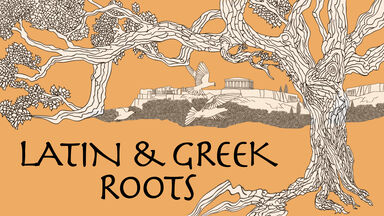Bugle Definition
Origin of Bugle
-
Middle English wild ox, hunting horn made from the horn of a wild ox from Old French steer from Latin būculus diminutive of bōs ox gwou- in Indo-European roots
From American Heritage Dictionary of the English Language, 5th Edition
Middle English from Old French from Late Latin būgula (perhaps influenced by būglōssa bugloss) from Latin būgillō
From American Heritage Dictionary of the English Language, 5th Edition
-
From Anglo-Norman, from Old French, from Latin buculus (“young bull; ox; steer”).
From Wiktionary
Late Latin bugulus (“a woman's ornament”).
From Wiktionary
Origin unknown
From American Heritage Dictionary of the English Language, 5th Edition
Old English
From Wiktionary
Bugle Is Also Mentioned In
Find Similar Words
Find similar words to bugle using the buttons below.


